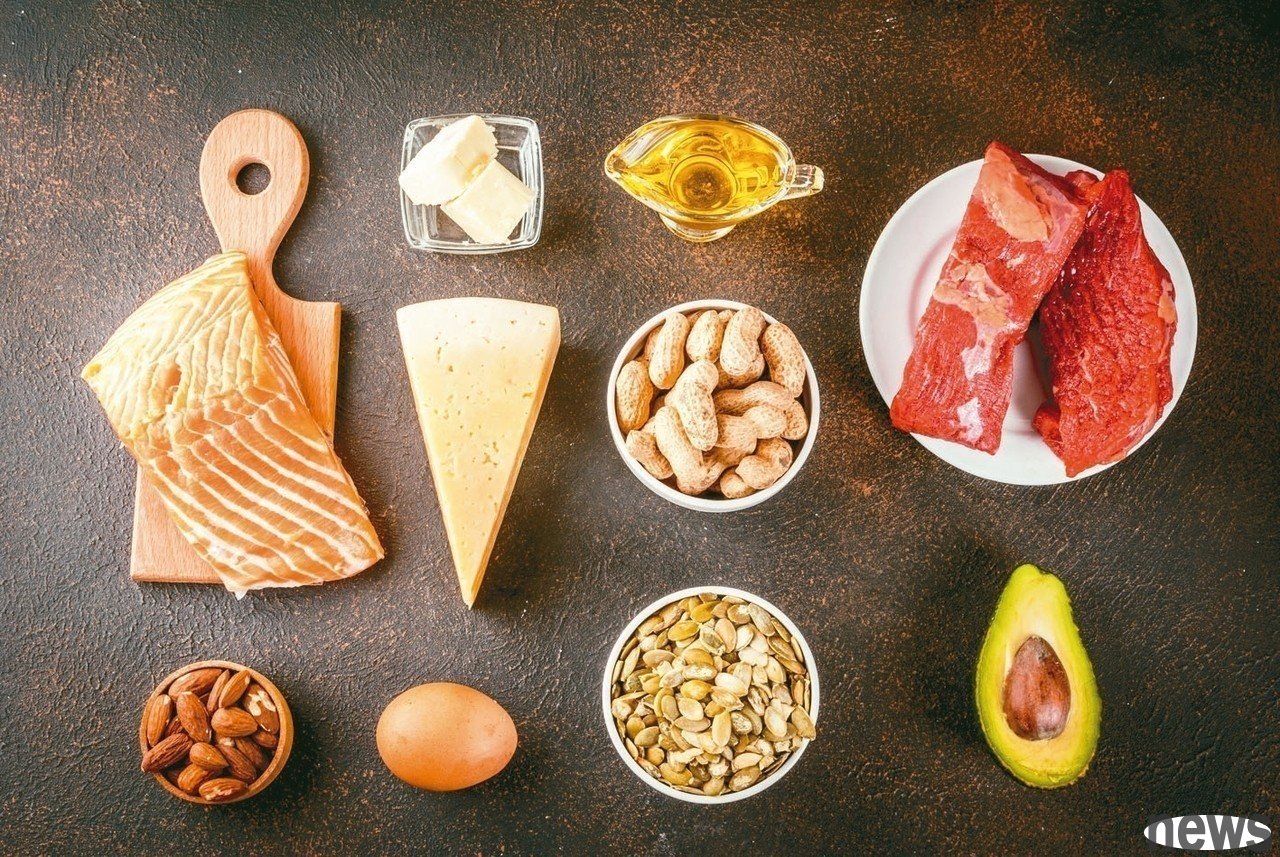Eat less carbs and burn more heat? Nutritionists analyze the devil in their experiments

Recently, there was news online that the latest research by American scientists found that low-carb diet can burn more calories, which is better for maintaining weight loss results. How good is this low-carbon way to eat it? Can it really prevent people from getting fat? Many people want to try it.
How is the "high-level" fat loss scientific research done abroad? Many people may be interested in this, so I will tell you in detail here.
1. How did this research do it?This study, known as the "Framinghan Food Research", was completed by researchers at the Boston Children's Hospital and published in the British Medical Magazine. The researchers recruited 234 overweight adults, who were between the ages of 18 and 65, and had a body mass index (BMI) of over 25. After
is recruited, you must first reduce the weight. This fat-reducing meal is carefully designed, with carbohydrate energy supply ratio of 45%, fat 30%, and protein 25%, but the total heat supply is only 60% that the body actually needs.
In other words, if a fattener actually needs 2,000 kcal per day energy, then he can only eat 1,400 kcal, which contains 87.5 grams of protein, 47 grams of fat and 158 grams of carbohydrates.
After 10 weeks of reducing diet, 164 of them achieved the goal of reducing weight by 10% to 14% and entered the weight maintenance stage.
Anyone who has experienced weight loss knows that reducing weight is hard, but maintaining weight after lightening is even more difficult. If you cannot maintain the weight after weight loss for at least half a year, you cannot be called successful weight loss!
 In the next 20 weeks, they were randomly assigned to three groups:
In the next 20 weeks, they were randomly assigned to three groups:
— — high-carb group (54 people, 60% carb, 20% fat, 20% protein)
— — medium-carb group (53 people, 40% carbohydrate, 40% fat, 20% protein)
—— low-carb group (57 people, 20% carbohydrate, 60% fat, 20% protein)
Also, the total heat input should be adjusted regularly, and kept within 20 weeks, and the body weight change should not exceed 2kg.
At this stage, the research goal is to compare the energy consumption between the three groups. In other words, the calories consumed by the three groups are different every day due to the small change in weight. (How is energy consumption determined? The researchers used the classic "dual water method", which is almost the most accurate method.)
to the end of the 20-week trial, 38, 39 and 43 people in the high, medium and low carbohydrate groups maintained their weight and successfully completed the trial. The success rates of the three groups are 70.4%, 73.6% and 75.4%, which is not much different. ……
Analysis found that in 20 weeks, the total energy consumption of the medium carbohydrate group is 91 kcal higher, while the low-carb diet group is 209 kcal higher. Calculations show that every 10% reduction in carbohydrate energy supply ratio, daily energy consumption increases by 52 kcal.
Sentence: under the same average weight, those who consumed low-carb diets burned about 200 kcal more per day compared to those who consumed high-carb diets.
At the same time, it was found that the levels of sterilization and leptin were significantly lower in recipients of low-carbohydrate groups and the levels of leptin were significantly higher in comparison with those of high-carbohydrate groups. This means that it is even less likely that they overeat.
The researchers concluded this that if this difference continues and we did not observe any declines within 20 weeks of the study, it means that we can lose 20 pounds (9.7 kg) in three years without changing the total heat input.
It is really exciting to hear. You don’t need extra exercise or eat less. You can lose weight by lying down? Isn’t it a great thing?

The biggest problem with this study is that the experimental results it results in the energy consumption determined by the data and are not the actual measured weight change data.
The study determined that the difference in heat in the 3 test groups burned at the same weight (calculated by formulas), and then used the heat difference to predict possible weight changes in the future.
But ……If the energy consumption exceeds 200 kcal per day (about 1 hour of walking) and lasts for 20 weeks, then people in low-carbon groups should be thinner, and the success rate of weight after maintaining weight loss should be much higher than other groups.
However, in fact, during the 20-week experiment, researchers did not observe a significant weight loss in low-carbon groups compared to other groups.
Therefore, there is a very big difference between theoretical deduction and actual situation.
Moreover, the practices in this experiment are difficult to promote actual life. In the study, the subjects insisted on eating foods that strictly control calories for 20 weeks; but in actual life, it is almost impossible for us to do it. Even in this study, about one-third of people did not stick to the end. The completion rates of the three groups of people in the trial were: high carbohydrate (38/54 people), medium carbohydrate (39/53 people) and low carbohydrate (43/57 people).
In addition, the experiment in this study lasted for 20 weeks (5 months), which was considered relatively long in the low-carbon diet study, but weight loss and weight control are actually a more long-term process. In life, too many people successfully rely on extremely low-carb diets to reduce weight in the short term, but later they became more and more frustrated.
For example, the American real-life show is called "The Biggest Loser". Most of the BMIs of the contestants exceed 40, which is considered to be seriously obese. They need to reduce weight as much as possible by eating and sports in 30 weeks. The champion with the largest weight reduction ratio can receive a $250,000 bonus.
Some scholars have followed these winners for a long time and found that their basic thanks are much lower than normal people. After one or two years, most of their physical weight has reversed, and some are even fatter than before participating in the program.
3. Will high-carb diets definitely fatten?In fact, if we look at more research on diet structure and body weight, we will find that low-carb diets will not be more helpful for weight loss. For example, some celadon analysis showed that there was no significant difference in energy consumption between low-carb and low-fat diets.
Increased blood sugar and reduced intraocular sensitivity are not conducive to weight loss, which is the theoretical basis for promoting low-carb diets. In this study, the researchers specifically stated that those who had the highest insulin levels at the time of initial testing (lower insulin sensitivity and more sensitive to carbohydrates) had more obvious effects on increased heat consumption during low-carbon diets. Compared with high carbohydrate groups, it can increase by as much as 308 kcal per day.
However, in the discussion part of the article, the researchers also said that another 12-month-long fattening study (DIETFITS, Diet Intervention Examining The Factors Interacting with Treatment Success trial) did not find that high- and low-carb diet patterns affect insulin secretion. Because in this study, good nutritional education and behavioral guidance were carried out, participants significantly reduced the amount of leucorrhea and added sugar, reduced highly processed foods, increased the intake of vegetables, and thus reduced blood sugar load, avoiding the adverse effects of "hyperglycemia reaction" on fat loss.
—— To put it bluntly, carbohydrates themselves are not devils, but are the leukocarbohydrates that react with high blood sugar, which is not conducive to controlling weight and preventing the three highs! Eating three meals that are reasonable with whole grains, vegetables and protein is beneficial to health and is harmful to weight loss.

If you really plan to use a low-carb diet to reduce fat, you should also pay attention to possible risks.
You should know that carbohydrates are an important source of energy for the human body and are clean energy sources. The ratio of 50%-55% is reasonable.
Previous studies have shown that people with carbohydrate intake between 50% and 55% have the lowest risk of death. Carbohydrate intake is too high or too low, which are related to the increase in death risk. Especially the extremely low-carb ketogenic diet may lead to serious side effects such as acidosis, kidney stones, and bone relaxation. The safety of long-term low-carbon fat loss has not been disclosed so far.
Also, for most Chinese people, eating a low-carb diet is not happy. It is difficult to persevere for a long time. Recently, animal studies have found that diets with high carbohydrates are more beneficial to cognitive abilities. This aspect is worth paying attention to.
In short, there is no shortcut to losing weight. The fundamental way to lose weight is to control the balance of total energy, maintain the vitality of the body, and persist in a healthy diet and exercise and fitness habit.
Otherwise, after reducing ten or even ten kilograms, it will soon turn back and cannot live in peace with daily food. What is the meaning?
Original text originated













